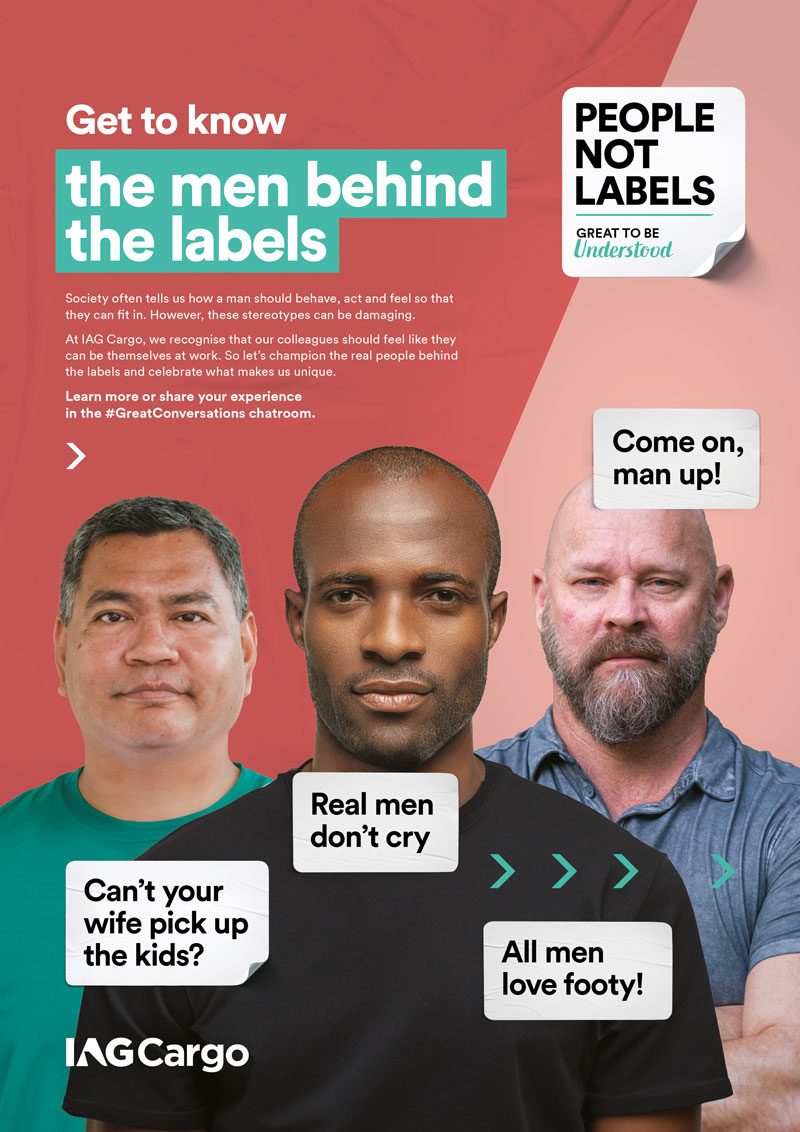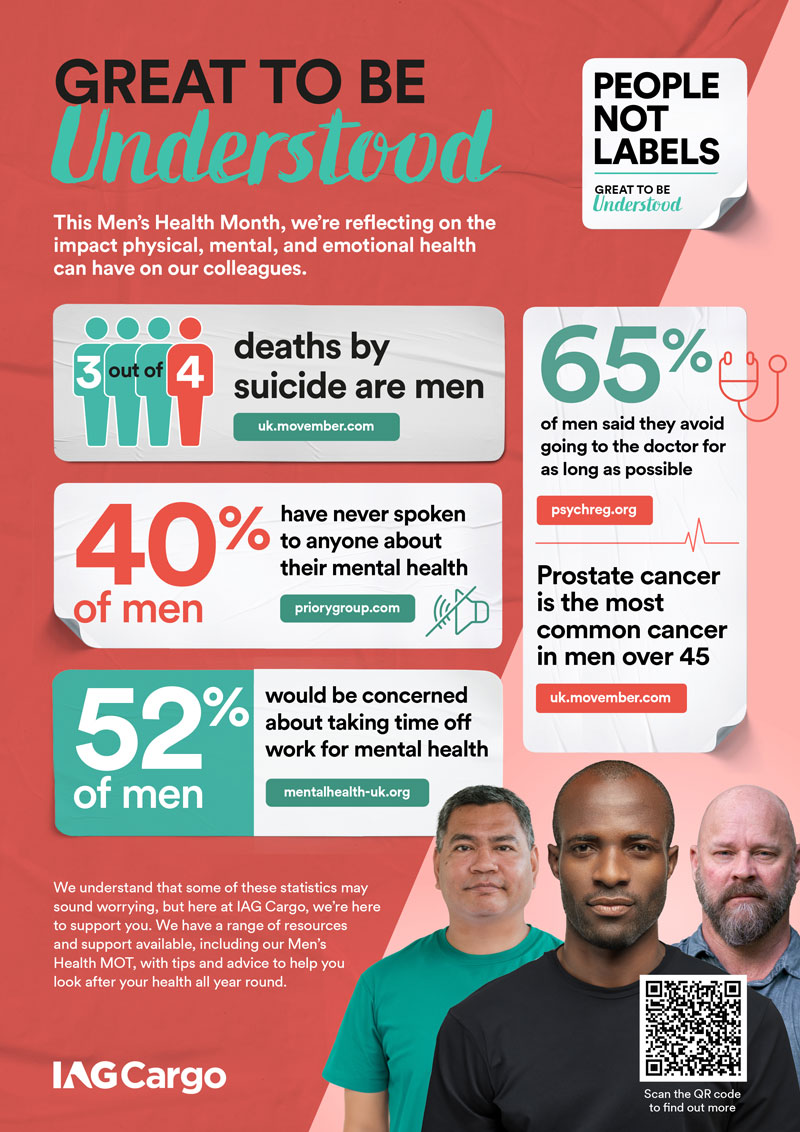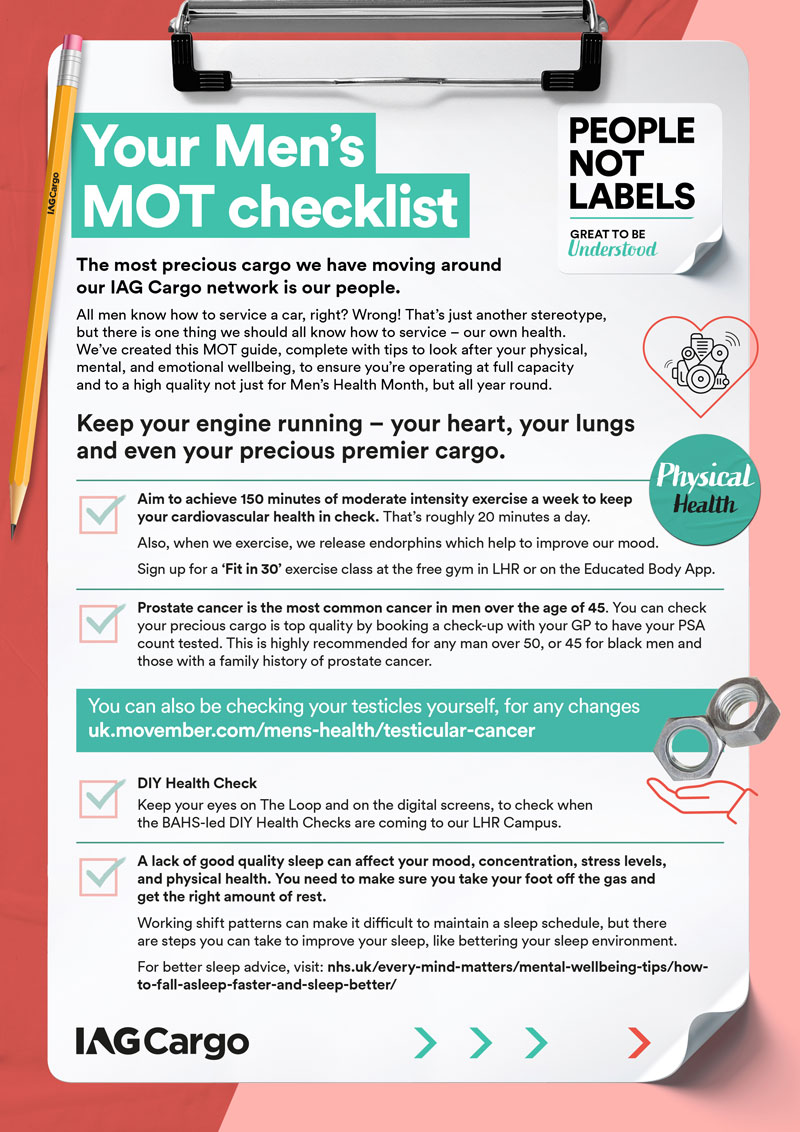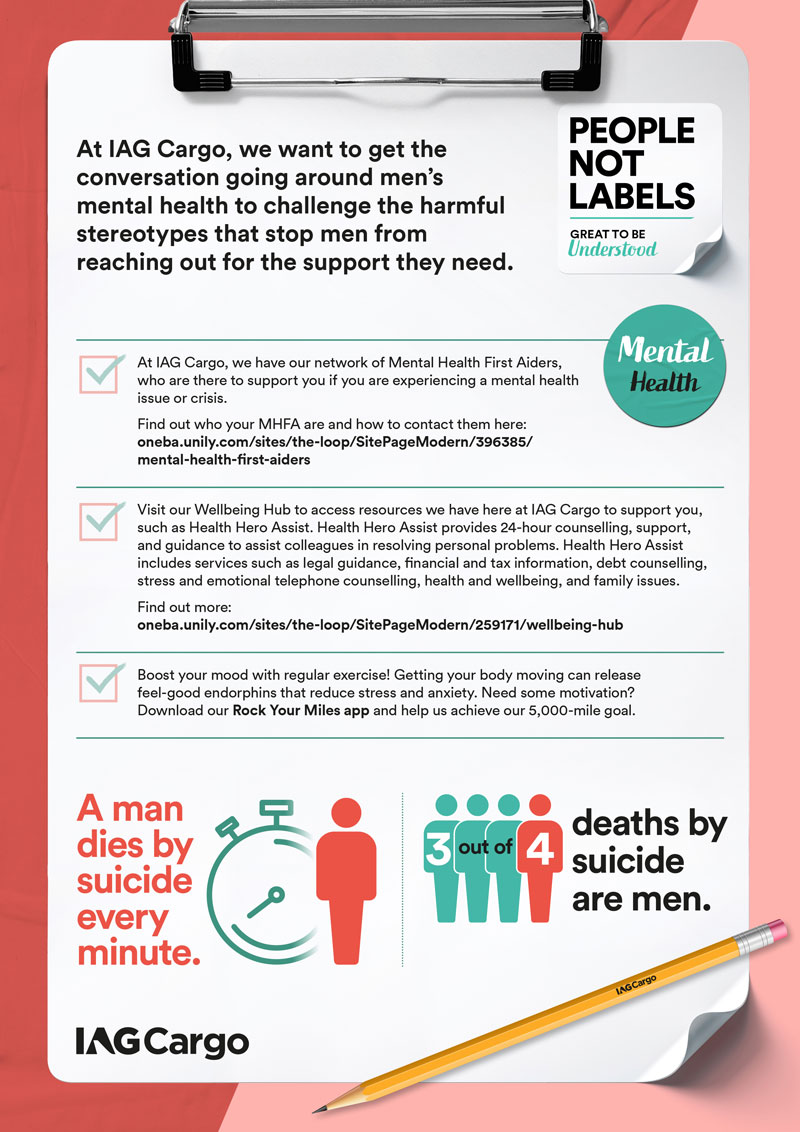

At IAG Cargo, it’s important that every colleague feels like they can be their true selves at work. As part of ‘Great to be’, they wanted to focus on the everyday stereotypes that men face to help create a more inclusive workplace for all.
Society often tells us how men should feel, act and behave so that they can fit in. But these stereotypes can have a negative impact on the physical, mental and emotional health of men.
IAG Cargo identified that male colleagues could be facing these stereotypes in everyday conversations. And although these comments were not meant in malice, that doesn’t make them any less harmful.
As part of ‘Great to be’ and an existing sub-brand of this initiative, ‘People not labels’, IAG Cargo wanted to raise awareness of the stereotypes male colleagues were commonly facing, as well as provide helpful resources for colleagues to use.
Men’s Health Month was an opportunity to help colleagues better understand their male colleagues, identify how they can be better allies, and raise awareness of the challenges men at IAG Cargo may face.


This campaign brought to life stereotypes that men typically face in everyday conversations – and the damage they can do to the men on the receiving end. Highlighting comments such as ‘All men love footy!’ and ‘Can’t your wife pick up the kids?’ made colleagues realise that these sorts of comments may be something they have said to a male colleague before. Colleagues were encouraged to start conversations with one another to better understand how they can change their behaviours to create a more inclusive workplace.
Alongside the main campaign poster, we created an infographic that helped colleagues get a better understanding of men’s mental and physical health in the UK. This was designed to help colleagues across the business understand what others may be going through or how they may be feeling.
A men’s health ‘checklist’ was made available to help male colleagues better look after their health as well as give all colleagues something to share with their family, friends and loved ones.


Colleagues gained a deeper understanding of the stereotypes that men face and through authentic conversations, realised how changing the language they use can create a more inclusive workplace environment where men can be their true selves.